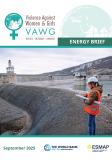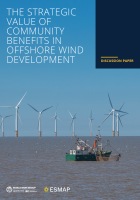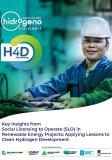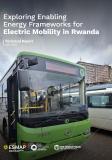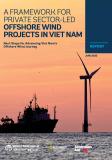Publications
The World Bank Group has published a paper which explores how community benefits created by offshore wind projects can foster social acceptance, drive positive socio-economic impact, and ultimately help deliver successful commercial projects.
What are Community Benefits?
Community benefits encompass a broad range of initiatives by offshore wind developers to address the priorities of local communities impacted by their projects.
These initiatives go beyond measures to mitigate impacts required by legislation. They are deliberate actions which create tangible social and economic value for communities.
Discussion Paper
The Strategic Value of Community Benefits in Offshore Wind Development report highlights the growing importance for offshore wind proponents to build strong relationships with host communities and secure a social license to operate. This social license, although intangible, is an important asset, rooted in community trust and acceptance of a company and its activities.
Launched at the Asia Pacific Wind Energy Summit hosted by the Global Wind Energy Council in Incheon, Republic of Korea, this paper is intended to facilitate discussion between developers, communities, public sector decision-makers, regulators, and businesses throughout all phases of offshore wind projects.
Case Studies
The paper provides valuable insights into designing effective community benefit programs, drawing from more than 30 case studies from 18 different energy markets worldwide.
These examples highlight the importance of tailoring community benefit programs to the specific needs of stakeholders, ensuring that affected communities experience a positive impact on their lives. They also emphasize the need to balance community benefits with what developers can realistically provide, while meeting the project’s commercial objectives and yielding a competitive cost of energy for rate payers.
Key Principles
As illustrated below, five building blocks are essential to the development and delivery of successful community benefit initiatives for offshore wind projects.
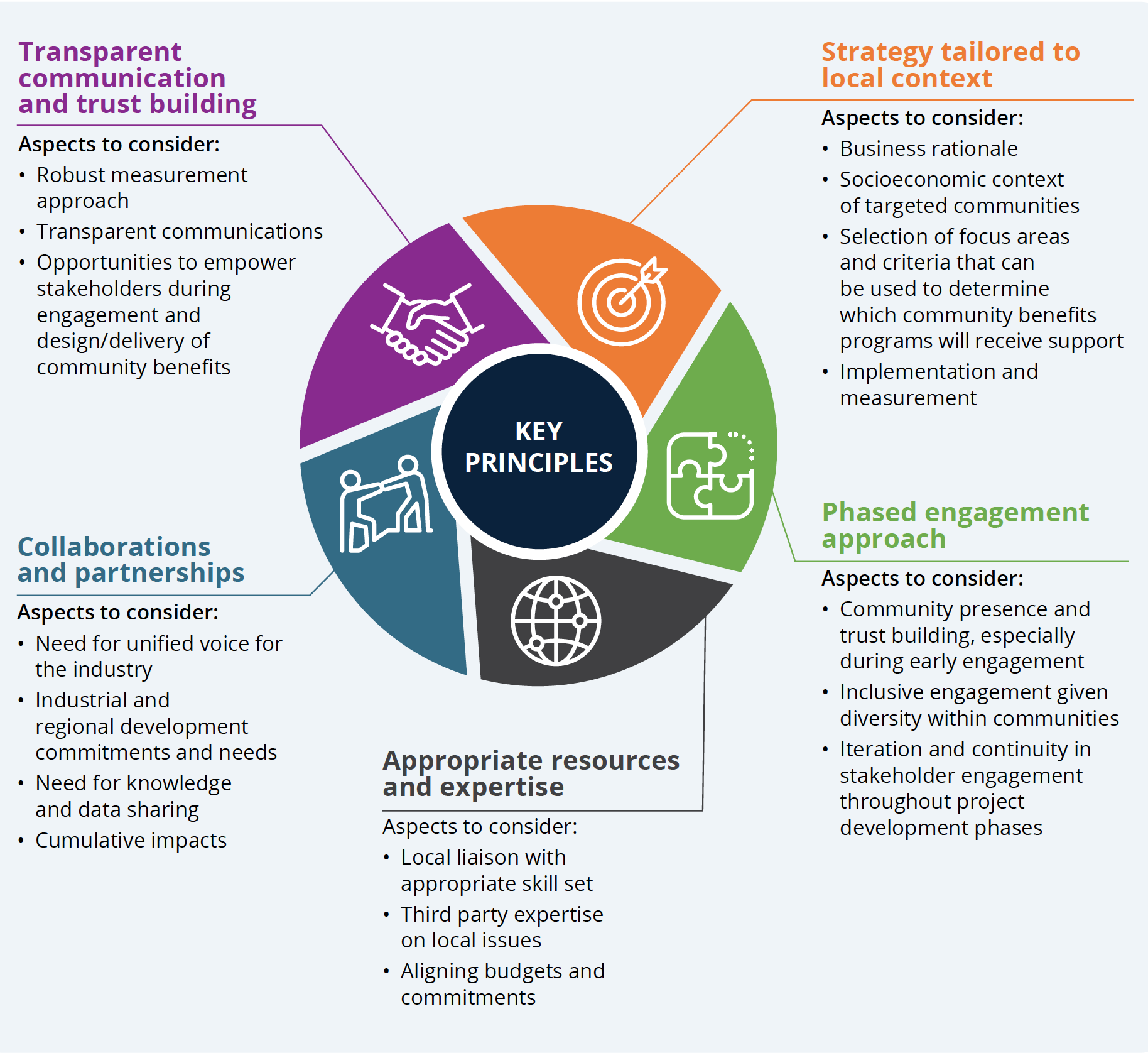
Key Messages
- Expanding offshore wind capacity is key to meeting global climate goals, but social factors could impede growth. Local resistance to offshore wind development can cause delays and even project cancellations.
- Community benefits can drive sustainable business and foster stronger company-community relationships. A heightened focus on meaningful initiatives to address community concerns and priorities can help projects secure and maintain a social license to operate.
- Community benefit programs should target the communities most affected by offshore wind projects. Often, communities facing the greatest impacts are those least likely to experience the broader socio-economic gains that the project aims to achieve.
- Companies have a wide range of options in designing community benefits programs. Depending on the project’s local context and community priorities, efforts can address several thematic areas, including: skills and livelihood support; public services and infrastructure; environmental stewardship; and shared ownership arrangements.
- Community benefits programs must be part of a broader strategy that prioritizes responsible management of project impacts and the highest standards of stakeholder engagement. Taken alone, community benefits programs will not ensure positive company-community relationships or enable offshore wind expansion.
About the Report
The paper was developed as part of the World Bank Group’s Offshore Wind Development Program, jointly led by the Energy Sector Management Assistance Program (ESMAP) and the International Finance Corporation (IFC), which aims to accelerate offshore wind development in emerging markets.
An advisory council including representatives from Equinor, Global Wind Energy Council, Ocean Conservancy, Ørsted, and SSE Renewables guided the development of the publication.
Energy Sector Management Assistance Program (ESMAP). 2024. The Strategic Value of Community Benefits in Offshore Wind Development. ESMAP Working Paper. Washington DC: World Bank.
